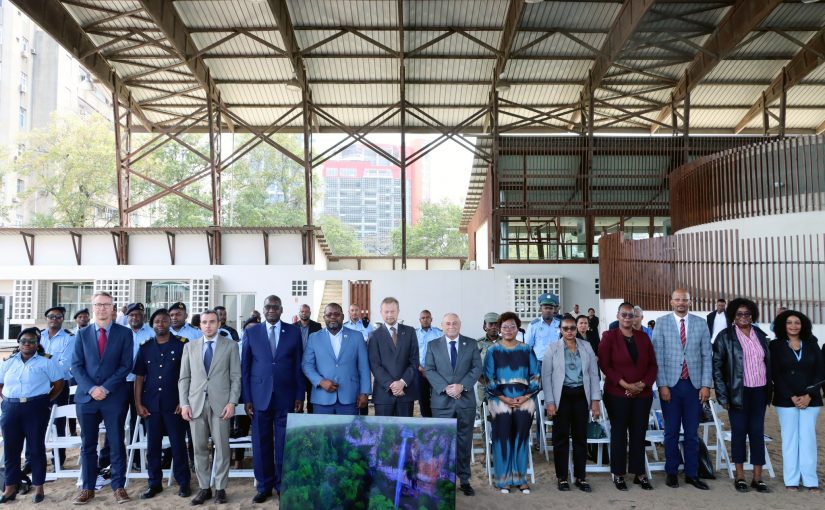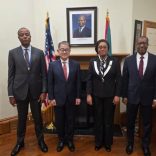Mozambique: Over 500 million meticais channelled to communities between 2005 and 2024
Mozambique faces ‘silent and destructive adversary’ in illegal fishing – FAO

Photo: Royal Norwegian Embassy in Maputo
The Food and Agriculture Organization of the United Nations (FAO) warned on Wednesday that Mozambique is facing a “silent and destructive adversary” in illegal fishing, and expressed its willingness to support a new project aimed at strengthening oversight.
“The fisheries sector in Mozambique has been facing a silent and destructive adversary: illegal, unreported, and unregulated fishing (…). This initiative is a determined response by the Government and its partners to improve fisheries monitoring, control, and oversight capacity for both industrial and small-scale fishing in coastal areas and the exclusive economic zone,” said José Fernandez, FAO representative in Mozambique, during the launch of the Fisheries Monitoring, Control, and Surveillance (MCS) project in Maputo.
Fernandez added that the country loses between US$60 and US$70 million annually due to illegal practices in the fishing sector, which compromise both resource sustainability and the livelihoods of coastal communities.
“This illegal activity undermines legitimate operations, compromises the objectives of sustainable development, and is intrinsically linked to crimes such as corruption and fraud,” he warned.
Mozambique’s maritime space covers approximately 572,000 square kilometres, including 12,000 km² of conservation areas currently “subject to threats that include overfishing, unregulated exploitation of natural resources, inappropriate tourism practices, pollution, extreme weather events (such as storms and cyclones), and urban and industrial development along the coast,” according to the National Maritime Spatial Planning Plan (POEM), previously approved by the Government.
The country also has a 2,700-kilometre-long coastline, which includes “extensive sandy beaches with dunes and coastal lagoons, marshes and mangroves, estuaries, and coral reefs” — considered “a significant natural resource in itself (…) and the country’s most valuable natural asset,” the POEM further states.
The new MCS project, developed by the Mozambican Government in partnership with the FAO, the United Nations Office on Drugs and Crime (UNODC), and with funding from Norway, aims to strengthen the monitoring, control, and oversight of both industrial and small-scale fisheries along the coast and in the exclusive economic zone.
The initiative also seeks to ensure the effective implementation of national policies and strategies, protect biodiversity, and promote socioeconomic development.
The Secretary of State for the Sea and Fisheries, Momade Juízo, emphasized that the initiative “aligns with the Government’s priority of promoting a sustainable and job-creating blue economy.” He recalled that Mozambique was selected by the Southern African Development Community (SADC) to host the Regional Monitoring, Control, and Surveillance Coordination Centre (MCSCC), which is nearing completion and will strengthen regional efforts to combat illegal fishing.
“As the host country of this regional centre, we hope to capitalise on and fully leverage this asset. Therefore, we urge the MCS project implementers to allocate the majority of the planned resources to field operations, where the challenge of combating maritime crime is most urgent,” the Secretary of State for the Sea and Fisheries added.
The head of the UNODC Office in Mozambique, António De Vivo, said the project’s actions will include “assessing the fishing sector’s value chain” and “analysing corruption risks,” with the aim of mitigating illegal practices and strengthening institutional integrity.
“This project positions Mozambique to face the challenges of illegal fishing with greater effectiveness, transparency, and accountability,” De Vivo concluded.












Leave a Reply
Be the First to Comment!
You must be logged in to post a comment.
You must be logged in to post a comment.